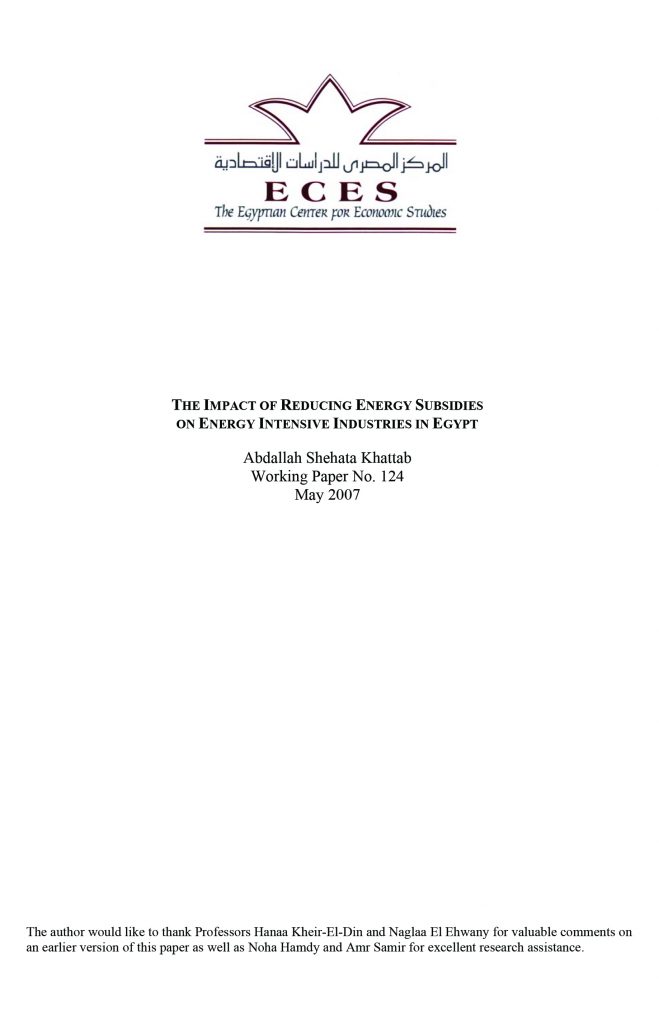Abstract:
This paper investigates the impact of reducing energy subsidies in Egypt on energy intensive[1]industries applying a partial equilibrium approach. It first selects a sample of sectors and industries that depend heavily on energy products, and then measures the impact on profitability per ton of production in these industries, holding other factors constant. The paper finds that energy-intensive industries in the Egyptian economy benefit the most from subsidized energy products either directly or indirectly. Finally, it concludes that increasing prices of petroleum products (including natural gas) and electricity can be absorbed by such companies without having to raise prices proportionally. In other words, energy intensive industries have flexible options to adjust to subsidy reduction in the sense that they can choose either not to raise prices, due to higher profitability ratios, or increase them in ways that do not exceed the actual increase in cost.

